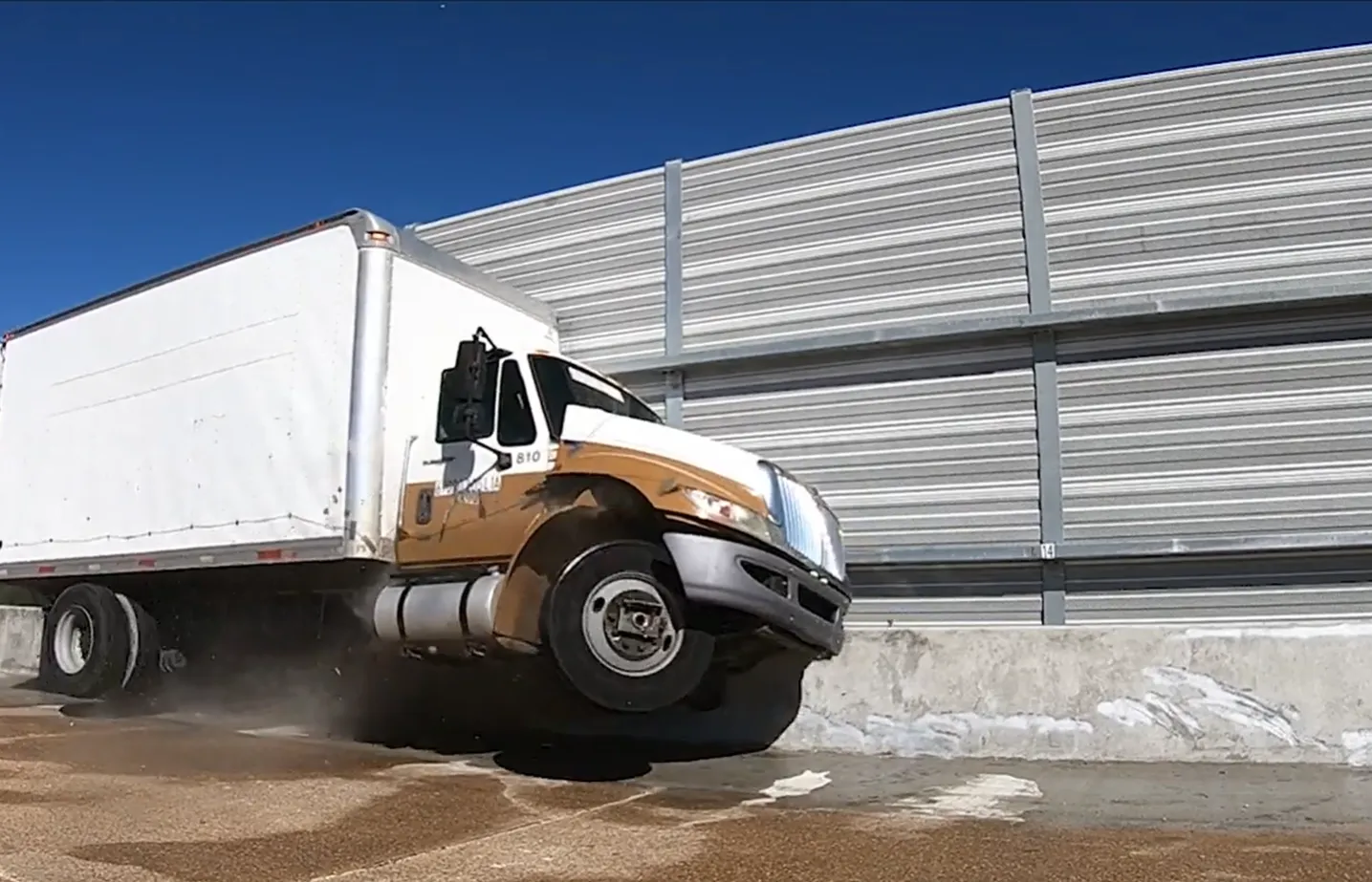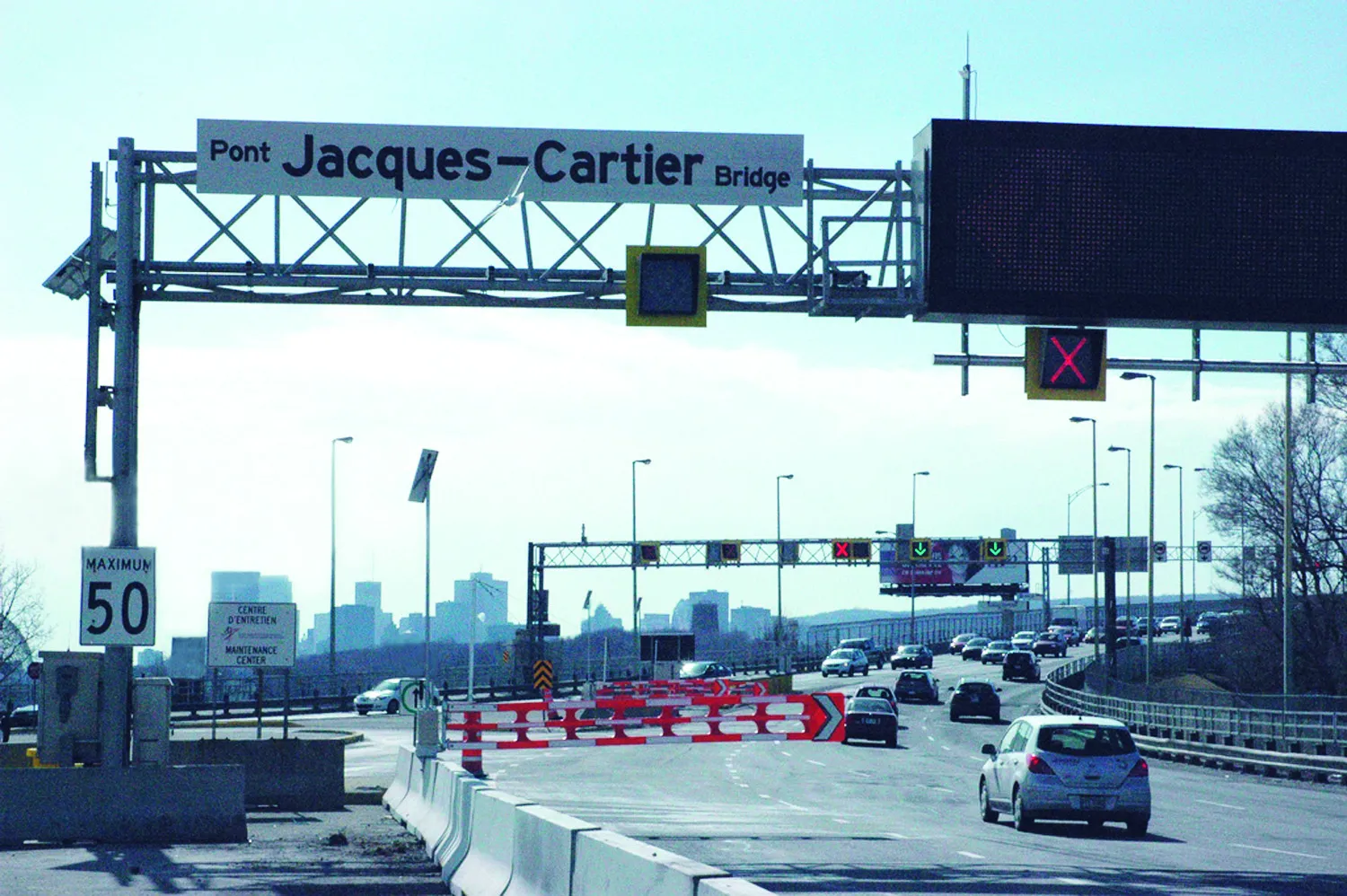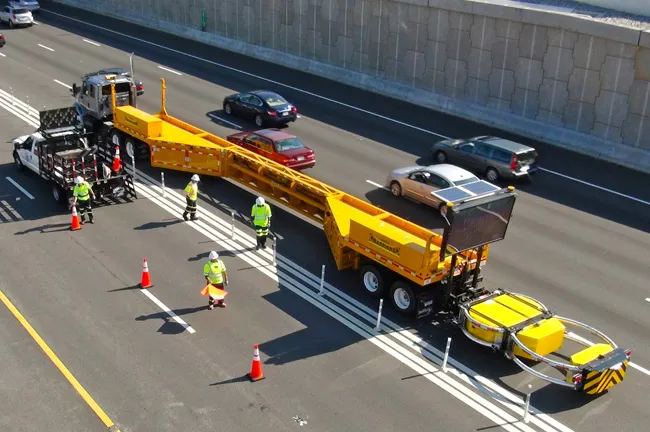
Durisol reports that its aluminium noise wall barrier has passed the MASH (Manual for Assessing Safety Hardware) TL-4 crash test in the US.
The structure-mounted noise barrier was first designed by the roadside safety experts at Safe Roads Engineering, a safety engineering consultancy based near Toronto, Canada. A mock wall was then erected at the test site, and the crash test was completed in early December, conducted by third-party provider Texas A&M Transportation Institute at their proving ground in College Station in the US state of Texas.
The MASH TL-4 testing criteria is dictated by AASHTO - the American Association of State Highway and Transportation Officials. To replicate worst practical conditions, the crash test is conducted with a 10,206kg (22,500lb) box truck at speeds of 93km/h (58.5mph) and at a 15° impact angle. A link to the crash-test video can be viewed here.
“Durisol’s aluminum noise barrier system provided excellent vehicle stability,” said Dean Alberson, senior research engineer at Safe Roads Engineering. “Despite the severity of the impact of the crash, the wall panels remained in place and intact, without flying debris and minimal damage.”
“By completing these tests, we can pass that peace-of-mind onto our customers,” said Mark Van Bakel, president of Durisol.
The lightweight, ready-made system is prefabricated, with the additional installation advantage of a tongue and groove assembly. When working alongside live traffic lanes, a quicker installation means a safer job for installers.
The barrier is built with perforations and a sound-absorbing mineral wool interior to respond to specific noise absorption and/or reflection mitigation requirements. It has double-sided noise absorption up to NRC 0.90. The product has also been tested for freeze-thaw and scaling.
The company offers other precast and transparent MASH-compliant TL-3 and TL-4 crash-tested noise barrier systems. Durisol has an in-house engineering team to design all noise barrier systems alongside its client partners.







